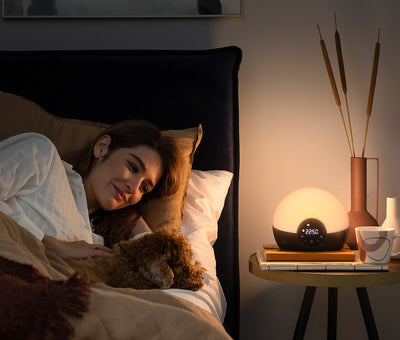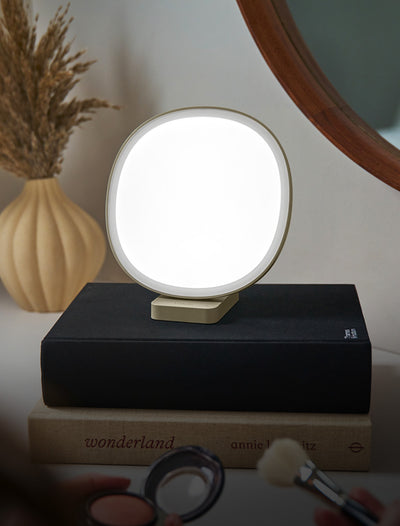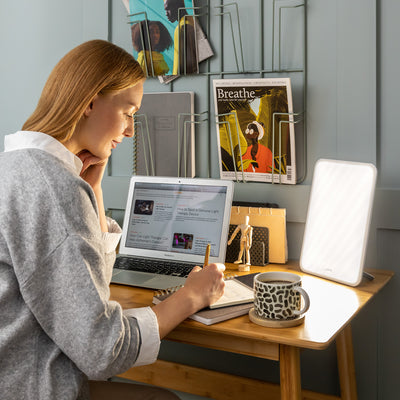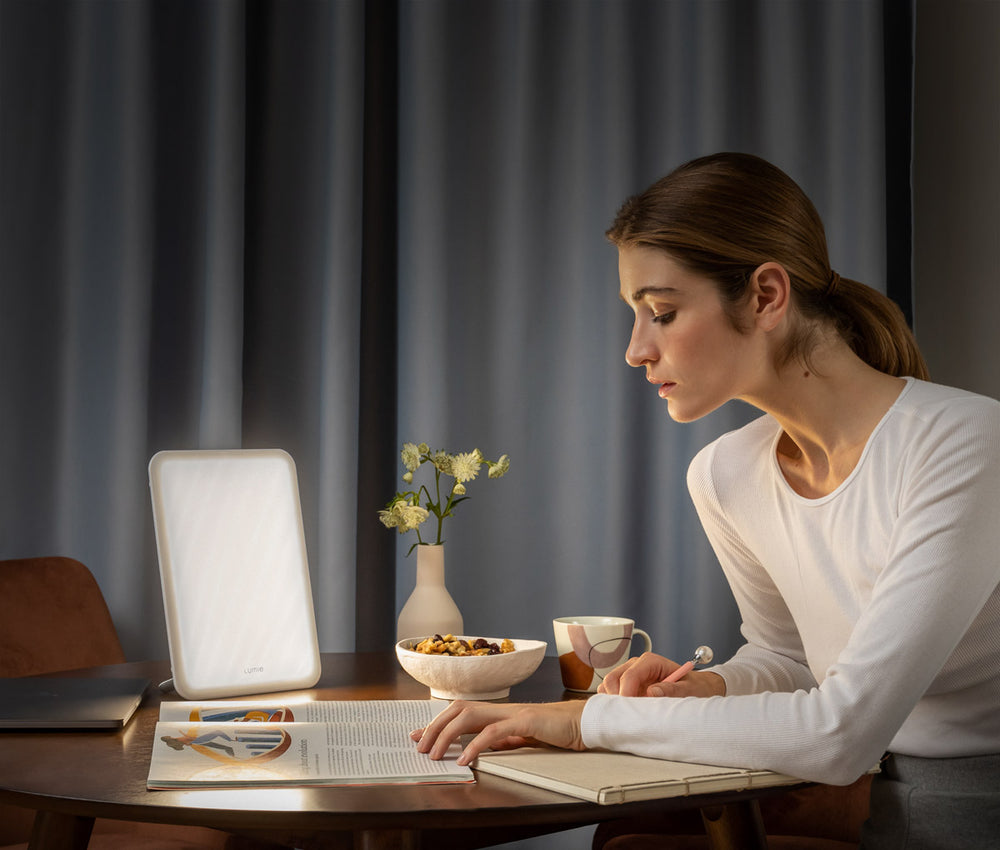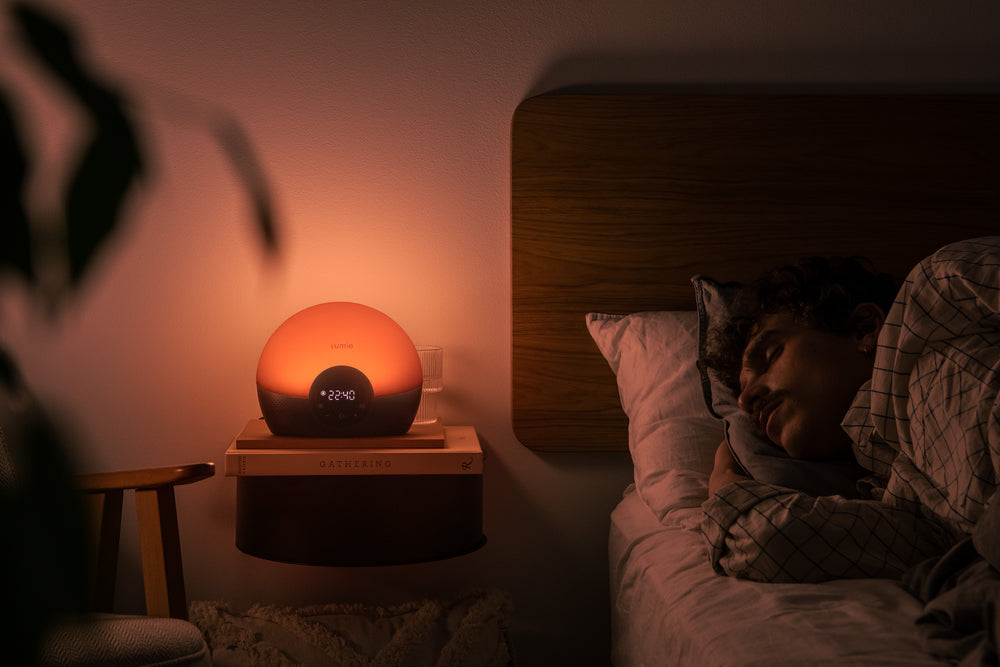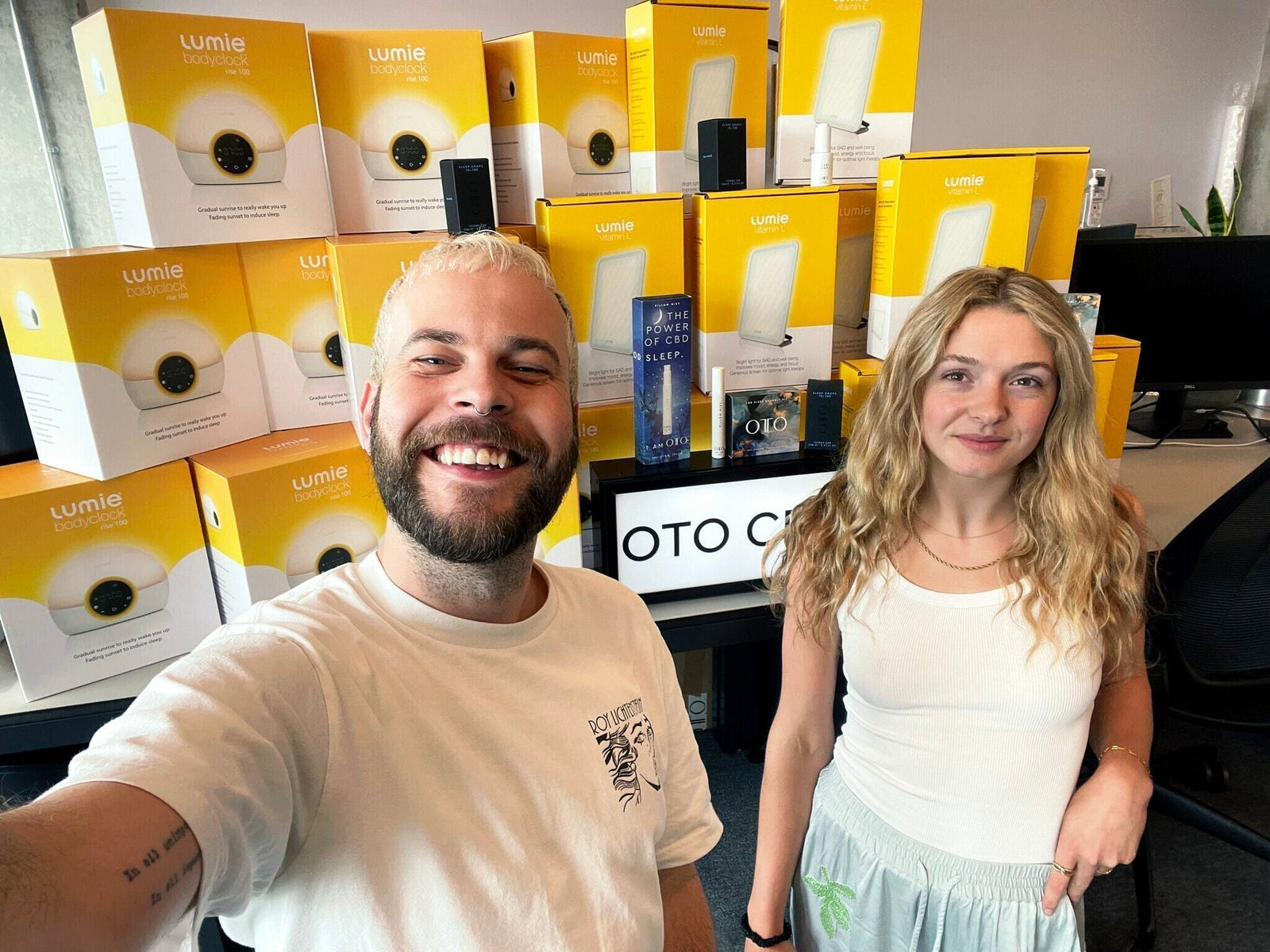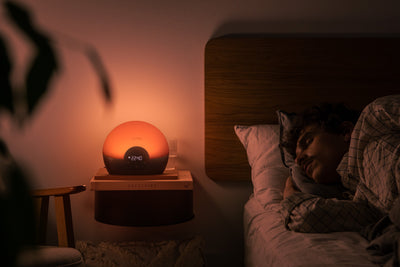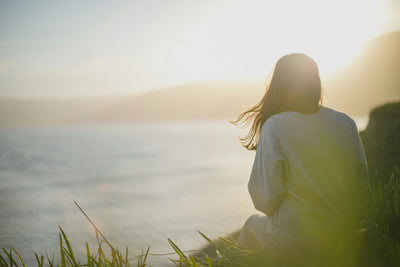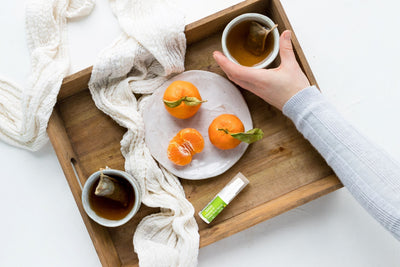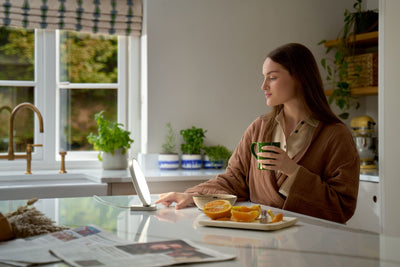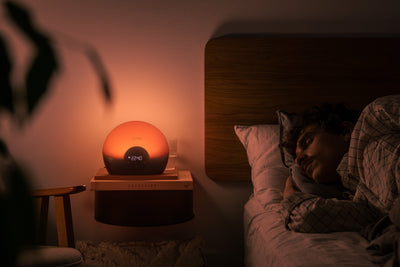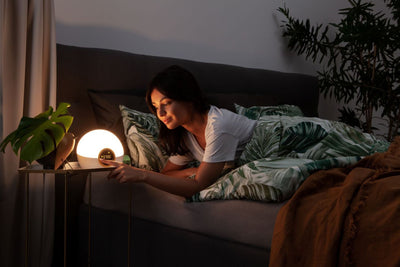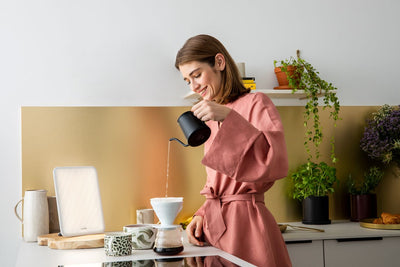Improving employee happiness with light: a workplace well-being study
We all depend on light more than you may realise. There’s a reason we talk about a sunny disposition! Light is a natural stimulant that helps you feel positive, upbeat and full of life. It's also an important factor for your overall physical well-being as it keeps your circadian rhythm on track so that your daily rhythms (i.e. when we eat and sleep) are aligned. However, with nearly one-third of your waking time spent at work, chances are you aren’t making the most of the daylight hours as the seasons change and days become ever-shorter. To explore how Lumie lights can help mitigate this, we’ve invited over 70 employees from four organisations to join a ‘light therapy intervention’.
We are delighted to announce the kick-off of our study right in the middle of the International Week of Happiness at Work. Our mission is to help people reconnect with their natural rhythms for best-ever sleep, mood and energy through harnessing the power of light, and we're eager to see the effect it can have not just on the participating individuals, but also organisations and communities they are part of.
Why does light matter so much?
Light is the most powerful synchroniser of your inner clock, and the most important role is played by the morning light. Humans have evolved to thrive in an environment abundant in sunlight, the colour, brightness and intensity of which change throughout the daytime hours, guiding human internal rhythms. In autumn and winter, you are likely deprived of sufficient exposure to the right type of light at the right time of day, which can adversely affect your physical and mental health. The 2018 Lancet Psychiatry study of 91,000 people found that a disrupted body clock was linked with higher rates of major depression, bipolar disorder, more loneliness, lower happiness, worse reaction times, and more mood instability. For optimum mood and energy, we all need light as bright as a spring morning on a clear day for around 30 minutes a day and the light must be at least 2,000 lux (the technical measure of brightness). That's roughly four times brighter than even a well-lit office, let alone a poorly lit one!
We are excited to be partnering with Lumie for their case study project. As a social impact organisation working in frequently intense scenarios, we are always looking for opportunities to support and promote the well-being of our team. Light therapy offers us a powerful way to do this by making sure our employees are better able to improve their sleep and avoid "winter blues"! Charlie Fraser, Partnerships & Strategy Director @ TERN
Can adequate exposure to light actually change your life?
Lighting interventions for better health and well-being are becoming more and more popular in our always-on, 24/7 urban cultures. Knowing that morning light is particularly important, using a wake-up light such as Bodyclock is fantastic at helping you feel refreshed and ready to get up and go upon waking even in the deepest darkest winter. In less well-lit offices or homes (or pretty much anywhere during the gloomier seasons!), where exposure to strong daylight is insufficient, bright light therapy delivered by lamps such as Vitamin L is the next best thing. It has been shown to play a crucial role in regulating sleep/wake cycles, synchronising the circadian (daily) clock, boosting mood, alertness, performance, and focus, as well as helping alleviate the symptoms of SAD and winter blues.
We jumped at the opportunity to get involved with the Lumie Lights case study! Being an online retailer who sells luxury beds and bedding, sleep is a hot topic in our office. I initiated a well-being programme at DUSK earlier this year to ensure our colleagues feel supported and listened to when it comes to their well-being at work but also at home. I really believe that this case study will better our understanding of how light therapy can boost your mood and improve productivity at the office and myself and the team are super excited to get started! Amy Turk, Wellbeing Champion @ DUSK.com
Championing workplace well-being
Our workplace well-being case study aims to investigate the finer details of how using light therapy can offer a sure-fire way to keep one’s “sunny side” up during autumn and winter, as well as improve energy levels, alertness and productivity. Inspired by the increase in focus on corporate well-being and mental health at work in recent years, we sought to meaningfully evaluate the difference light therapy can make not just on people individually, but also on organizations at large. We are joined by amazing and diverse teams from different sectors and cities across the UK: TERN, a social enterprise working to enable refugees to thrive through the power of their own ideas; DUSK, an online luxury beds and bedding store; ZEVERO, a start-up on a mission to accelerate the transition to net zero emissions; and OTO, purveyor of sustainable and research-backed premium CBD products.
OTO was born out of our founder Gemma's personal battle with anxiety and her high-pressure job. Gemma turned to CBD to help maintain a healthy balance within her body and support her circadian rhythms to ensure a peaceful night's sleep. So, when Lumie (a brand I have always admired for making products that are grounded in science), presented an opportunity to work together, I could not say no. It is the perfect partnership between two brands that understand the importance of prioritising restful and restorative sleep to ensure we all make the most out of our days. Jessica Burn - Wellbeing and Culture Manager @ OTO
Life made bright, am-to-pm
Prior to receiving their essential light therapy bundle (Bodyclock Rise 100 and Vitamin L), all participants filled out a detailed survey about their sleep, waking, morning and evening routines, mood, productivity and energy levels, as well as lighting conditions at work and home.

We also asked about “tech hygiene”, and nearly 80% of respondents bring their phone to bed. This statistic is particularly interesting, not least because of the correlation between blue-light exposure at bedtime and poor sleep. It also highlights an incredible (though perhaps not immediately obvious) perk using Bodyclock lights has to offer. With no need to rely on your phone to tell time or to set an alarm, you can kick the habit of scrolling late at night or sending emails from your bed to establish healthier boundaries, improve sleep and mood. For those who work from home, maybe even from one bedroom, it can help draw a line between where the office stops, and the sleep sanctuary begins. To encourage our participants to see these lights as catalysts of positive change, we proposed personal challenges which can be easier achieved with light therapy, such as carving out more ‘me-time’ in the mornings, beating afternoon slumps naturally and sustainably with light rather than caffeine and/or sugar, or banning screens from their bedroom. Over the next six months, we will track the progress and gather feedback from the partaking teams, while providing support and guidance on how to make most of Lumie lights.
After spending the first 6-months of our company in a basement to get low rent, we relied heavily on our Lumie lamp for any form of bright light. After hearing about this study, understanding the importance of sleep and light therapy I can’t think of a better way to support our team as we head into winter. I look forward to seeing the benefits for both myself and the team over the next few months! George Wade - Co-Founder @ Zevero

